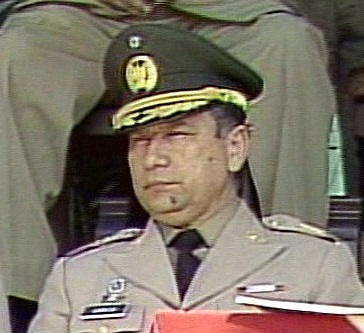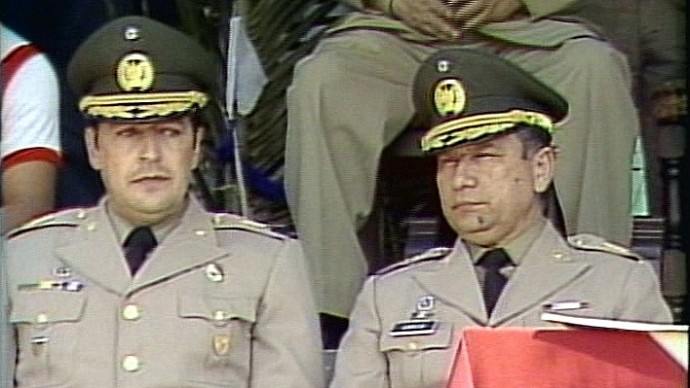(MintPress)–A Florida immigration judge has taken the first step in the deportation of former Salvadoran top military commander, Gen. Carlos Eugenio Vides Casanova, who is accused of assisting in severe human rights violations, including the murder of several Americans during the country’s civil war in the 1980s.
Vides, El Salvador’s defense minister from 1983-1989, is the first top-ranking foreign military commander to face deportation under a 2004 anti-terror law intended to prevent human rights violators from seeking asylum in the United States.
The U.S. government supported Vides during the 1980s, but is now leading the effort to deport the general. The current case was brought by prosecutors from the Human Rights Violators and War Crimes Unit (HRVWCU), a branch of the U.S. Immigration and Customs Enforcement (ICE) National Security Investigations Division (NSID), which prevents foreign war crimes suspects from entering the United States and deports those already in America.
Since 2004, ICE has deported over 400 human rights violators from the United States, picking up steam and public support after the HRVWCU was created in 2009.
Vides Casanova’s Crimes Against Humanity
Prior to serving as the Salvadoran defense minister, Vides served as the commander of the National Guard. During his command, four Catholic church women were murdered by a military death squad in 1980. Judge James Grim’s ruling in the Orlando immigration court this week was the first time Vides has been found guilty for association in the 1980 killings.
In 1984, five Salvadoran national guard soldiers were convicted and sentenced to 30 years in prison for the murders of the American nuns. However, past lawsuits filed against Vides for his assistance in the murders ruled in favor of the defense and subsequent appeals were denied.
Judge Grims also found Vides guilty based on his involvement in the killings of two Americans and a Salvadoran land reformer and the torture of Salvadoran citizens. Two Salvadoran torture victims, who filed and won a previous lawsuit against Salvadoran generals, testified in Vides’ deportation case.
Juan Romagoza was one of the plaintiffs in a 1999 lawsuit filed against General Vides Casanova and General Jose Guillermo Garcia, which led to the current deportation case. In 2002, a West Palm Beach jury ruled in favor of the plaintiffs and delivered a $54.6 million judgement against the generals.
According to the Center for Justice and Accountability (CJA), the ruling was upheld in a 2006 appeals court and forced the defendants to relinquish $300,000 of personal funds, making it “one of the first human rights cases in U.S. history in which victims have recovered money from those found responsible for abuses.”
The verdict sparked letters of support from various senators and activists asking the Department of Homeland Security to file deportation charges against the generals.
In response to the judge’s deportation ruling, Romagoza said, “This victory is not just my own. It is a victory for the entire country of El Salvador. . . . The torture I suffered was not unique to me. It was the suffering of many innocent Salvadorans.”
From 1980-1992, El Salvador’s militant government, supported by U.S. financial and military aid, waged a repressive attack against a left-wing revolutionary movement. Over 70,000 people died during the civil war and thousands more were tortured and displaced.
The U.S. supported Vides and other militant leaders in region as a way to thwart off Marxist rebels during the Cold War. Vides and Guillermo both received Legion of Merit awards from President Reagan, the highest honor given to foreign dignitaries.
One Violator Leaves, Many More Remain
While Vides may be on a path to deportation, there are numerous human rights violators still hiding inside the United States. The HRVWCU has already arrested over 200 suspects for human rights violations and is currently pursuing over 1,900 more leads involving suspects from roughly 95 countries.
And although the United States claims not to provide asylum to government officials accused of human rights violations, several dictators, including the former Shah of Iran and more recently former Yemeni President Ali Abdullah Saleh have been graciously accepted in the United States for temporary refuge despite human rights accusations they face in their own countries.
There are still several lengthy steps left to go before Vides can be deported. However, the Judge Grim’s decision makes clear that Vides is eligible for deportation and is unlikely to reverse the charges this far into the case. A separate deportation charge is currently being pursued against Salvadoran Gen. Guillermo Garcia.



